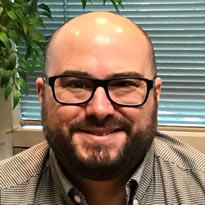So, two persons find each other. They find common ground, common interests and fall in love. They have children. Perhaps, they are living the dream. They have a shared vision their future, their careers, their lives, their children. They are two who become one, even though they are two.
And, then something happens. They meet others and stray. They surpass their goals. They grow apart. They no longer have that special shared dream that they once had. And, then at least one decides that the relationship is no longer viable, no longer desirable no longer acceptable.
They divorce. Sometimes the schism is by mutual agreement. Sometimes, it is hotly contested. But eventually, the one become two again.
Fortunately, in some cases, the parents find a way to work together, reason together about visitation, about separate but harmonious vacations and about educational issues. Unfortunately, in many cases amicable co-parenting is not in the cards. Parents fight over custody. They fight over visitation schedules. They fight over vacation schedules. They fight over education.
Parent A says, “I live in town or city Y. Town, or city Y can provide the children with a good education. And town or city Y is where my children will be educated.” Parent B says, well “I live in town or city Z. Town of city Z is where our children should be educated.”
The parties cannot resolve their differences. Both parties “dig in”. They become entrenched in their positions.
Invariably, a court battle is initiated. And the judges? Well, the judges say, “hey, I am not an expert in such matters. How am I supposed to make a fair ruling? How do I decide what is in the best interests of the children?” Suppose there are special circumstances. One or more of the children have disabilities. The children may have one parent that has dual citizenship. One of the parents is committed to having their children educated with other children of the same race, creed or religion. Now what?
The party that elects to ignore the significance of such educationally relevant issues, (if you will be kind enough to pardon the pun) is courting disaster. One might argue that there is simply no way to address such complex issues factually, cogently or convincingly.
So, the question arises: Are there experts who can make some sense out of what seems to be a an unruly, barren apparently lawless landscape? The answer is yes, but there are not many that have the expertise to cogently address the complex issues that will undoubtedly arise in such cases.
And any “expert’ that says that such issues are a ‘piece of cake’ is likely to be far less of an expert than he or she portends.
However, during the past several years, I have been involved in exactly just such cases, in a variety of jurisdictions, including CT, HI, MA and WA. In some instances, the issues pertained to children or adolescents who were disability free. In several matters, at least one child had significant disabilities involving intensive special education issues. Specialized testing and individualized educational programs were utilized as key elements in the case.
In some instances, specialized independent educational evaluations (specialized testing) have been necessary in person and via Zoom. The bottom line is every case requires and deserves a problem-solving perspective, influenced by scientific procedure and creative solution-seeking resolution.
One might argue there is simply no reasonable way to compare one school district to another. However, such a conclusion is likely to result in faulty reasoning. An expert who portends to address such issues must explore the evidence providing by multiple sources of information, including the respective data derived from the state departments of education. However, even data from respective state departments of education may not tell the whole story. Research should go beyond state departments of education searches and utilize other credible sources. There are several research sites that include analyses of districts and various elementary, middle and high schools. Even private schools have been analyzed for purposes of school comparison. Factors like district and school rank, student-teacher ratios, qualifications of personnel, availability of support staff, technological resources, curriculum offerings, after school clubs and special education support are some of the variables that may be useful in district to district and school to school comparison.
Special circumstances, warrant specialized research. In other words, there is no ‘cookie cutter’ approach to careful and resourceful analyses. A healthy research approach combines science and ingenuity. There is no place for arrogance, overly indulged confidence or a lack of integrity.
In short, an expert who purports to claim that he (or she) can support the position of any client may be strong on an overindulged sense of confidence, but a bit weak on integrity. During the past several years, I have learned that issues that pertain to educational decision-making that is truly in the best interests of the child are complex, intriguing and deserving of a blend of careful scientific and intuitive analysis. In short, no one size fits all.











